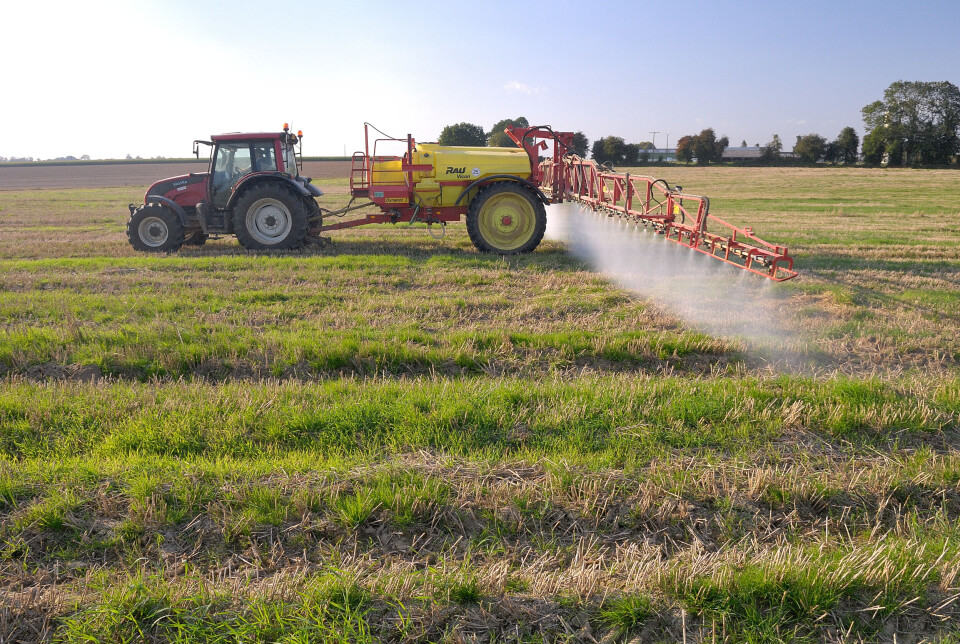-
France heat: 130 records set on February 25 - will it continue?
Seasonal records smashed as far north as Normandy and in the Alps
-
Aer Lingus relaunches summer Nice-Cork service
Two flights per week between May and September link south of Ireland and France
-
Foreigners in France 'should be given local votes back'
Political right mobilised to try to halt debate on law extending rights
Pesticides near rural homes: French farmers protest over limits
The protests began in Paris early this morning. Farmers claim the latest decision on pesticide spreading from France’s highest administrative court will threaten their livelihood

Hundreds of farmers have protested against plans to extend no-pesticide spreading zones, with two managers at farming union la FNSEA among those arrested in the ensuing police clashes.
The protests began at 06:00 this morning (Tuesday, December 14) in front of the Conseil d’Etat (administrative supreme court) in the first arrondissement in Paris, and were dispersed by police just before 08:00.
Protesters set fire to several pallets and some spoke to the crowds to denounce what they see as an injustice, calling for financial compensation to what they say will amount to “lost hectares” of their land.
Action des agriculteurs devant le Conseil d'État à 6h ce matin à l'appel de la FNSEA contre les zones de non-traitement aux pesticides (ZNT) et le manque de compensation financière sur la perte d'hectares. pic.twitter.com/bbDD7zbl6X
— Anonyme Citoyen (@AnonymeCitoyen) December 14, 2021
The protest comes in response to France’s highest administrative court giving the government six months to define the rules on pesticide spreading in a bid to “better protect the population”.
The court published the ruling on July 26, after the government set a series of minimum distances required when spreading pesticides on crops close to buildings, including five metres for ‘low’ crops, such as vegetables and cereal, and 10 metres for ‘high’ crops, such as fruit and vines.
But le Conseil d’Etat said that these rules had been highly contested on all sides.
It said: “These minimum distances were contested before le Conseil d’Etat by associations, communes, and organic farmers, who said they were not far enough; and [on the other side] by non-organic farmers and the chamber of agriculture, who considered them to be excessive.”
This is despite the health safety agency l'Agence nationale de sécurité sanitaire (Anses) recommending “a minimum distance of 10 metres between homes and spreading zones of all products classified as carcinogenic, mutagenic or toxic, whether their effects are proven, presumed, or only suspected”.
Le Conseil d’Etat therefore ruled that the minimum distances set by the government in 2019 were “insufficient”, and in July, asked the government to “put in place protection measures for people who work close to an area in which pesticides are being used, which the current regulation does not do”.
It gave the government six months to review and comply with the ruling, and has said that any shorter limits “approved by local prefects” are not valid, because such rules “cannot legally be decided by a decree, but by law”.
Read more
- France must improve farm pesticide rules for workers and locals
- Farmers can spray pesticides within 5m of rural homes
- French NGOs bring court case on confinement pesticides
Farmers say that the rules will threaten their work and production levels.
Amandine Muret-Béghin, president of the Ile-de-France young farmers’ group, les Jeunes Agriculteurs Ile-de-France ouest, said that she does not understand the court’s decision.
She told FranceInfo: "We know what we do and what we use. We don't understand all the controversy that surrounds the use of these products [pesticides]. We are professionals. We don't just use these things in any old way.”
The Conseil has also said that it intends to extend the list of products that cannot be used near homes, which are known as ‘suspect substances’, and ensure pesticide spreading limits also apply to businesses and workplaces as well as homes.
But one farmer, David, told France Inter that the new rules would result in "a loss of production". He said: “These areas will just be left fallow and in grass. It's going to create no-go areas.”
Related articles
Local anti-pesticide laws not allowed in France
Organic crops in France found to contain herbicide carried in wind
























